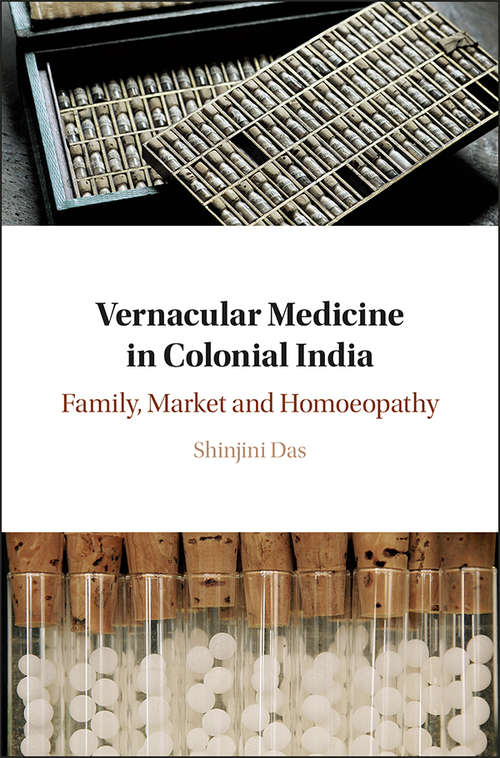Vernacular Medicine in Colonial India: Family, Market and Homoeopathy
By:
Sign Up Now!
Already a Member? Log In
You must be logged into Bookshare to access this title.
Learn about membership options,
or view our freely available titles.
- Synopsis
- Conceptualised in opposition to 'orthodox' medicine, homoeopathy, a western medical project originating in eighteenth-century Germany, was reconstituted as vernacular medicine in British Bengal. India went on to become the home of the largest population of users of homoeopathic medicine in the world. Combining insights from the history of colonial medicine and the cultural histories of family in British India, Shinjini Das examines the processes through which western homoeopathy was translated and indigenised in the colony as a specific Hindu worldview, an economic vision and a disciplining regimen. In tracing the localisation of German homoeopathy in a British Indian province, this book analyses interactions between Calcutta-based homoeopathic family firms, disparate contributors to the Bengali print market, the British colonial state and emergent nationalist governments. The history of homoeopathy in Bengal reveals myriad negotiations undertaken by the colonised peoples to reshape scientific modernity in the subcontinent.
- Copyright:
- 2019
Book Details
- Book Quality:
- Publisher Quality
- ISBN-13:
- 9781108356237
- Related ISBNs:
- 9781108420624, 9781108420624
- Publisher:
- Cambridge University Press
- Date of Addition:
- 03/14/19
- Copyrighted By:
- Shinjini Das
- Adult content:
- No
- Language:
- English
- Has Image Descriptions:
- No
- Categories:
- History, Nonfiction, Medicine
- Submitted By:
- Bookshare Staff
- Usage Restrictions:
- This is a copyrighted book.
